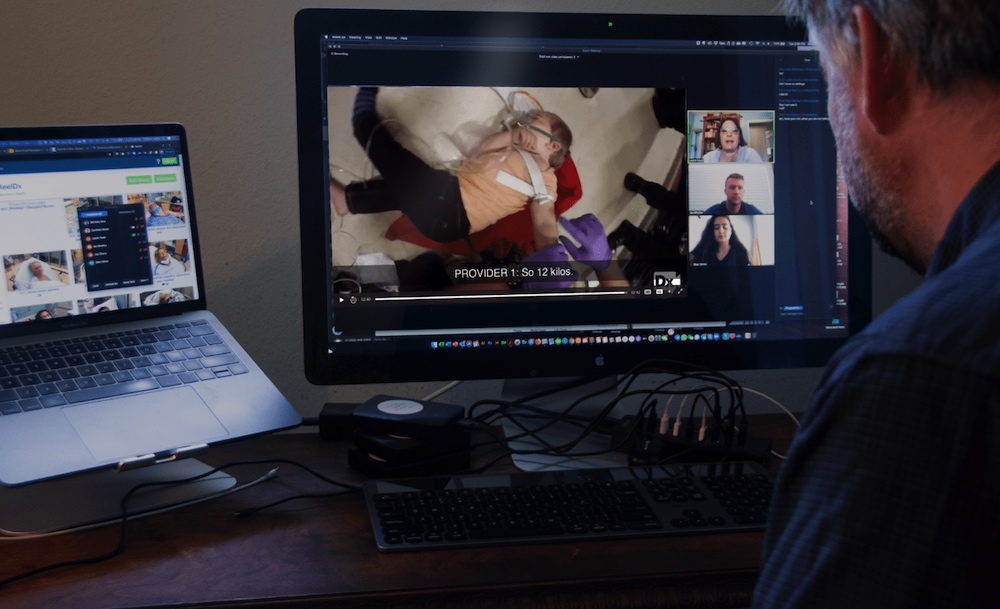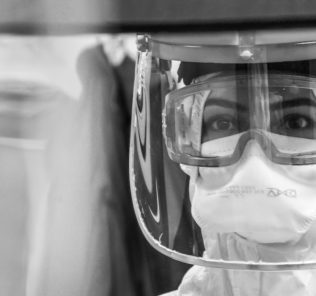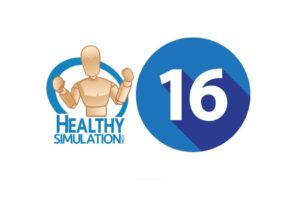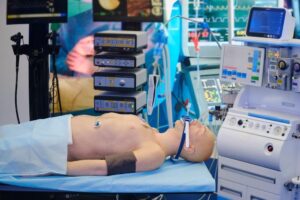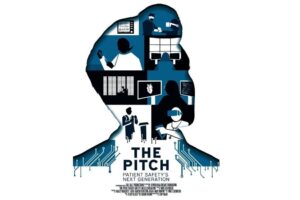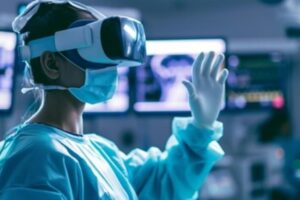ReelDx: Real Patient Case Videos Bring Actual Patients to Clinical Education 24/7
ReelDx is an educational platform that is transforming medical education by offering peer-reviewed, HIPAA-compliant, real patient video cases. After login, learners arrive at the main “Cases” landing page, where content may be navigated by searching for a symptom, diagnosis or case number; filtering by case variables, and sorting by case number or published date. Using this technology, ReelDx is enabling physicians and patients to capture their shared experience. The company’s mission is to improve patient knowledge and treatment compliance; to streamline medical education; and most importantly, to clear insights about medical decision-making at the human level. Here, we lean more about ReelDx!
The coronavirus pandemic created a dramatic and global need for increased virtual healthcare simulation training measures across academic institutions and health systems alike. As a result, many healthcare institutions sought out remote clinical simulation platforms that would assist them in continuing to educate learners, despite the need for added safety measures and precautions. For example, Bethel University’s Physician Assistant program began this search and was excited to identify ReelDx as a video recording solution that met the institution’s learning needs. This solution was needed to address the reduced access the university’s students had to clinical simulation environments.
Although the field of medical simulation education has experimented with digital solutions in the past, such VR simulation software programs and specialized video recording systems have become crucial components of healthcare simulation education. These resources have allowed learners to practice diverse clinical simulation scenarios outside of the hospital. Specifically, ReelDx seeks to continue to learn about new use-cases that innovative educators are applying, and remains involved in supporting and learning from the implementations of educators.
Sponsored Content:
Tammie Haveman, assistant professor within the physician assistant program at Bethel University, shared, “ReelDx really stood out to me from the other programs that I looked at. This was due to the fact that [the solution involved] real patients, and real medical scenarios are featured.”
Transitioning to Online Learning with ReedDx
Like many other institutions across the world, when traditional clinical rounds to come to a halt within Bethel University’s Physician Assistant Program, the faculty were left wondering “What’s next?” Soon they came to realize that the next step was to transition to online learning using the video recording system made available by ReelDx.
”My department asked me to research and select a program to integrate into our instruction that would help fill the gaps left by clinical rounds being canceled,” Haveman shared. “Once I came across ReelDx it was a no-brainer. The fact that the solution features real patients and their evaluations with real healthcare providers really stood out to me. This allowed for the flexibility that is necessary in online learning without sacrificing the exposure to real-world scenarios.”
Sponsored Content:
The ReelDx platform is composed of a library containing nearly 700 healthcare simulation scenarios, designed for nursing simulation, PA programs, EMS training, and featuring individual plans. Each case features a two- to three-minute introductory video of the simulated patient interacting with their provider. There is also rich case data, including vitals and demographics of the patient, a suggested differential diagnosis, the final diagnosis, and a range of additional media to help students fully understand the case. The ReelDx library can be sorted and filtered by patient age, organ system, or specialty when a learner simply enter a search topic and limits their results.
To create the ReelDX clinical simulation scenarios, patients must consent to the use of their case data as well as their image in video, permitting their experience to be encapsulated in the ReelDx library. This ensures that all cases are HIPAA-compliant. During the virtual reality experience, the medical provider holds the camera (often their phone), providing a first-person perspective for viewers that simulates an in-person experience.
“We faced two serious problems when COVID-19 made it impossible for our PA students to perform their clinical rounds in a hospital setting,” she recalled. “We wanted to provide quality clinical simulation training in the absence of site availability and we don’t know when this virus will lift, and when we will be able to return to our normal procedures.”
She added that the reality was that she had a class full of students ready and eager to continue their education, and that she and her team had to find a way that they could advance them through their degrees. They needed a solution that allowed learners to continue practicing their healthcare skills without “cutting corners” when it came to their wealth of knowledge.
The Future of Virtual Learning with ReelDX
Beyond the realities of COVID-19, the popularity of telehealth has also revolutionized modern medicine and allowed for greater convenience especially to people in rural areas, elderly people, and people too busy for in-person health management. As emerging vaccines bring hope for the pandemic’s end, and medical simulation education returns to in-person learning, ReelDx will continue to serve as an essential learning tool.
Haveman believes that industries such as telehealth are here to stay. She says, “I think that more and more people have been opting into these kinds of services due to the nature of the pandemic, but I think that people are realizing, ‘Hey, this would make a lot more sense in my normal routines as well.’”
While the current pandemic will eventually subside, the shifting landscape of medical education has accelerated toward digital learning. Digital platforms like ReelDx allow learners, like the ones enrolled in the Bethel University PA program, to study, practice, question and repeat lessons as necessary according to their own schedules and lifestyles. This allows for more flexibility and leads to a more inclusive and diverse community of learners.
According to Haverman, the impact of telehealth, remote care, and digital learning over the last year is evidence of permanent change. Equipped with the experience of virtual learning and real-world clinical simulation scenarios, she believes newer healthcare providers (including Haveman’s students) are better suited to administer care in an increasingly uncertain and evolving world with solutions like ReelDx. By utilizing a video recording system, healthcare simulation educators can continue to provide flexibility, convenience and consistency to all participating demographics.
Learn More About ReelDX!
Today’s article was guest authored by Kendall Jacoby, a freelance writer based in Moab, Utah. She pursued an independent major fusing humanities with ecological and social justice programs at Western Washington University. When Jacoby isn’t writing, she works for a local non-profit urban farm in Salt Lake City.
Sponsored Content:



